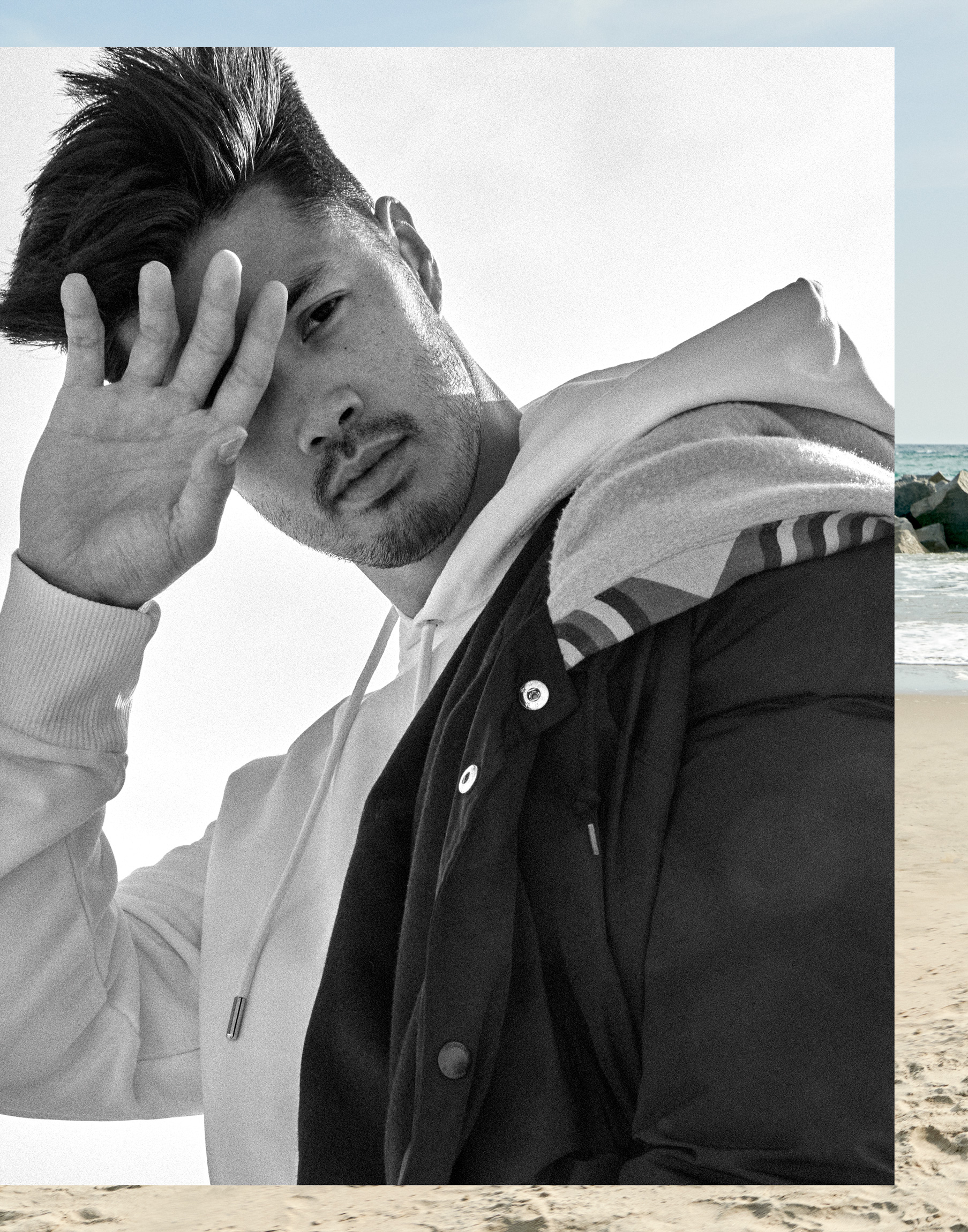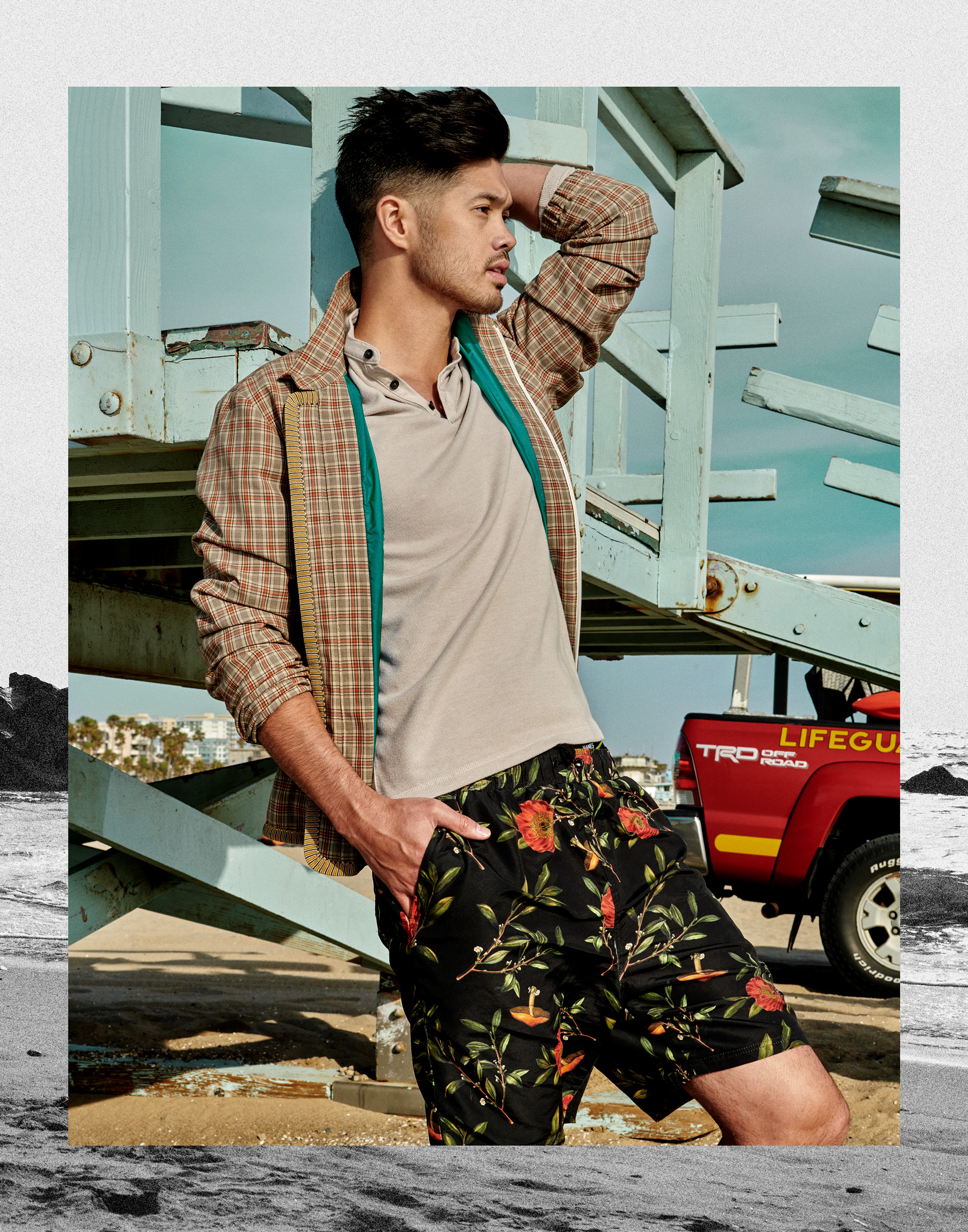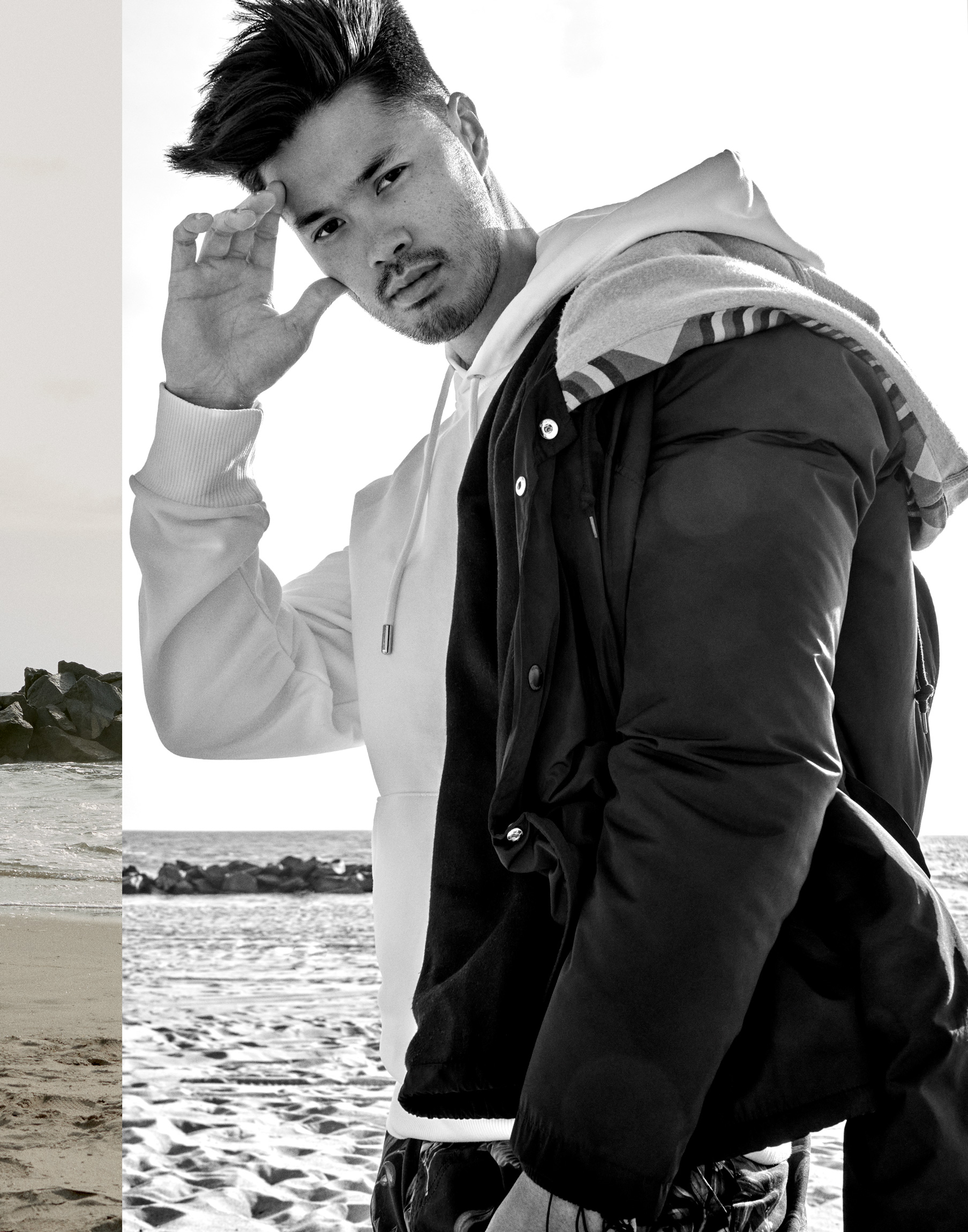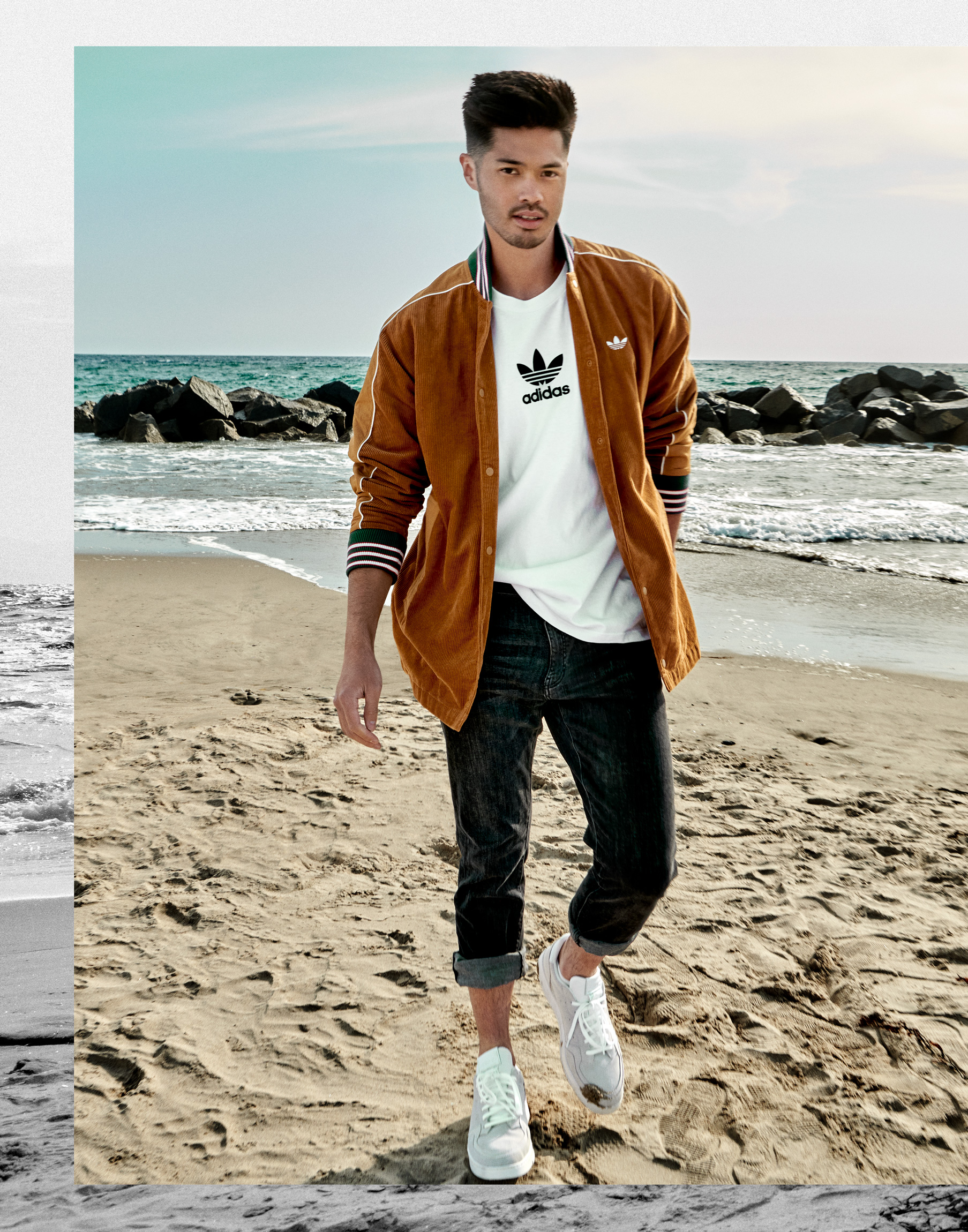Actor Ross Butler on the Importance of 13 Reason Why’s Provocative Storyline
The role-defying actor talks time in quarantine, four seasons of the trailblazing YA series, and inclusion for Asian-American actors in mainstream media.

Born in Singapore and raised in the United States, actor Ross Butler carries an unprecedented, worldly perspective into each of his creative endeavors. Appearing in the 2016 drama series Teen Wolf and rising to prominence as Reggie Mantle in Netflix’s Riverdale, Butler is certainly a television regular, but his career goals include much more than just playing a part. Recognizing the vast underrepresentation of Asian-American actors in mainstream media, Butler has made it his mission to challenge the status quo and redefine stereotypes through his repertoire of roles. At 30 years old, the seasoned actor has a plethora of diversified characters under his belt; however, one of his most life-altering, on-screen embodiments was that for Zach Demspey, a high school jock who experiences the tumultuous trials and errors of life on Netflix’s 13 Reasons Why. Starring across the likes of Dylan Minette, Brandon Flynn, Alisha Boe, and Miles Heizer, Butler plays a major role in attentively shedding light on each of the trauma-marked experiences the teenaged clan endures, all of which are much more common than one might believe.
“It’s crazy that the show has only had four seasons,” he says. “I know I’ve changed so much as a person because the show has brought so much awareness to me. With some of the storylines, like the sexual assault that happens to Tyler and instances like that, it wasn’t that I was doubting that it happened, but I was like, there’s no way that this is such a widespread thing. After doing more research, I discovered that a lot of the topics that we talk about that may seem farfetched are actually really real. I’m just hoping that 13 Reasons Why has the same effect on the audience that it’s had on me as an actor. I’ve learned so much.”
A show filled with vital life lessons, especially for the young adult audience it predominantly attracts, 13 Reasons Why intertwines a multitude of high school hardships and tragic plotlines in a highly respectable and educational manner. Now, after the fourth and final season of the series has just debuted, VMAN sat down with the boundary-breaking actor to discuss his time in quarantine, his experience inhabiting the mind of Zach Dempsey over the last four seasons, and his plans for the future.
Read what Ross Butler had to share, below.

VMAN: How has self-isolation been for you?
ROSS BUTLER: Not bad, actually. It’s weird. It seems like it was so long ago when we went into it, and I’ve actually adjusted completely. I’m pretty happy.
VMAN: Have you taken up any new talents or hobbies in this time?
RB: Oh yeah. I mean, I feel like I’ve had to, especially since I don’t have like any social engagements. I learned Japanese for a month and a half, and I’m learning Arabic now. I got back into cooking. I have a few projects that are in development, creatively, On my end. I’m really happy that I’ve had this time because, before quarantine, I had been working for like two and a half years straight. So I’ve had all these ideas in my head and I finally have no work and reduced socializing so I can just be creative and get shit done.
VMAN: Congratulations on the final season of 13 Reasons Why! Reflecting on your time on the show, what initially excited you about the role of Zach Dempsey?
RB: I read the book, and Zach Dempsey was barely in the book. So at first, I was like, eh that’s all right… It’ll probably be a small role. I was still working on Riverdale at the time, too. But then, I started talking with the showrunner Brian Yorkey, and he told me what he wanted to do with Zach and how he wanted to portray these jock characters with a little bit more depth and kind of update the jock archetype. I kind of went into it with a blank canvas. And then also the Asian-American part of it like, historically we just haven’t seen Asian-Americans as jocks in American entertainment. The main reason why I chose acting as my career was to shake up the status quo and redefine perspectives by bringing my experience with growing up into the media sphere.
VMAN: There’s obviously so much that goes on in Zach’s life as the series progresses, but how did you initially prepare to get into his headspace? Do you have a ritual that you go through when you prepare for a role?
RB: For me, the emotional work comes first, like building character. That’s the majority of the work and the majority of that work happens off-screen. So it’s like when I get home from set or even before we go into shooting in the season, I’ll figure out what’s going through their head. For Zach, this season was kind of a big shift. As we see, he has this downward spiral and he becomes a lone wolf. The good thing about being on TV show versus a movie is that you have a lot of that character already built just on the history. There’s three seasons of history that I’ve lived through to inform how this character will be the season. Zach has a really sad history. I thought to myself like, people that run into these many obstacles, sometimes they just give up, and that manifests in different ways. Sometimes people disappear or sometimes people just want to make the best out of life, but not in a good way, if you know what I mean.

VMAN: Did you discover any connections or similarities between your personal identity and Zach’s character as you went about the four seasons?
RB: Yes and no. I do relate to Zach in some ways, in that he is hopeful for the world and that he’s always trying to do right by people, though, he’s not the smartest guy around. He’s always trying to do right by his friends, and unfortunately, throughout the seasons, he learns that his efforts are rooted in vain. That’s kind of the lesson that I want to teach people about Zach is that you can’t think like that. You can’t turn away from your community and your friends. We’re all in this together in the end. You can’t take it all on yourself.
VMAN: There’s so many intense moments in the show, but I’m wondering if there’s one that particularly sticks out to you as the most challenging part of playing Zach in the latest season?
RB: In the most recent season, the hardest scene for me to play was the last scene I ever shot on the show. It was when I was waiting outside the hospital to go in to see Justin, but I couldn’t. That was probably the most emotional I’ve been as Zach. Whereas, you know, I had seen my father die in that hospital and I had been distancing myself so much from my friends and isolating that I didn’t realize what was going on. For Zach, that moment of being called out and being told that your best friend is dying in there, and you’ve got to go see him. For the first time really in the season, Zach experienced deep fear and this deep feeling of hurt. It was really hard and heartbreaking to me, but it’s what he needed. Sometimes we need a kick in the ass to change our perspective, and it sucks at the time, but you come out the other side much clearer.
VMAN: So ultimately through the entire show, what overarching message do you hope fans take away from your contributions as Zach?
RB: Zach’s history is sad. I think people don’t really realize this, but his dad died, and the first girl that he liked, Hannah Baker, took her own life. Then, the next girl that he liked was being sexually assaulted by who he thought was his friend, and then she ended up dating somebody else and then he loses his whole future and he doesn’t have his mom that he can talk to because she’s emotionally distant.
For Zach, I think the biggest take-away from him is the idea that you just have to keep going. That’s really what it is. If you’re going through hell, keep going. You’ve just got to get through it. I don’t mean that in a cold way. It’s just that every bad thing that happens in your life makes you stronger for the next one, if you choose to think of it that way. If you choose to wallow in the things that hurt you and the things that tear you down, you will get lost, you will become this lone wolf and you’ll be disconnected. Everything that happens in your life is building towards something, and if you can just get to that something, it’s rewarding, and you’ll be prepared for it. I think that Zach is a story of resilience.

VMAN: Through your role on 13 Reasons Why and with everything else that you’ve done, you now have this large platform where you have the power to inspire change. What’s at the forefront of your endeavors of using that platform?
RB: My main motto as far as storytelling is showing not telling. There’s so much going on in the world right now, and it’s polarizing people, right? We have Twitter, Instagram and people arguing and they’re just swinging mud at each other, and I’ve always seen that as the wrong way to go about things. The second that you personally attack somebody, the debate is over. You’re just burning a bridge in between you and the other side. For me, as far as what I’m trying to do with my career is changing the minds and perspective of people on the other side, but not through arguing with them prior to showing them. I’m fighting for inclusion and fighting for diversity. For example, to see an interracial relationship on a popular TV show will open your mind and tell you, hey, this happened, and this is normal. It’s important so that the next generation grows up seeing these things that maybe they haven’t seen in their neighborhood or their town, and so they’re more used to it. So they don’t feel like it’s this foreign thing, if that makes sense.
VMAN: Aside from acting, what other creative outlets do you, are you currently exploring?
RB: I would say mostly writing at the moment. I’m just creating the content, just creating the stories that I want to see, that I think are going to affect people and the things that people want to see. I’ve been reading a lot about the millennial generation and Gen Z and how, for the first time, this generation, the millennial generation, has grown up in a horrible situation of economic crises, one after another, and then COVID-19, and what that does to those millennials’ psychology and what kind of entertainment they want to watch because of that. Do they want fantasy fulfillment or do they want something that’s really grounded?
It’s the same thing with Gen Z. I just saw this article yesterday about Gen Z roasting millennials, and I thought it was hilarious. It was this thread on TikTok. I was just like, Oh my God, like, this is what they think of us? But yeah, in the writing, it’s about taking the time to try to understand what audiences want to see, and it’s a really interesting path I’ve taken over this quarantine.
VMAN: With all of your success thus far and with everything ahead that you still have yet to accomplish, what do you hope to be remembered for?
RB: I hope to be remembered for someone that didn’t accept the status quo and when the opportunities didn’t present themselves to me, I want to be remembered for creating them and not just for myself, but for everyone else. I want to open that door to saying that you can be creative and you can have an effect on people. You don’t need to be a lawyer. You don’t need to be a doctor or an engineer, especially if you’re Asian-American. I think the most rewarding thing is that you can do something that you love and that fulfills you and that you can help other people as well.

Discover More
